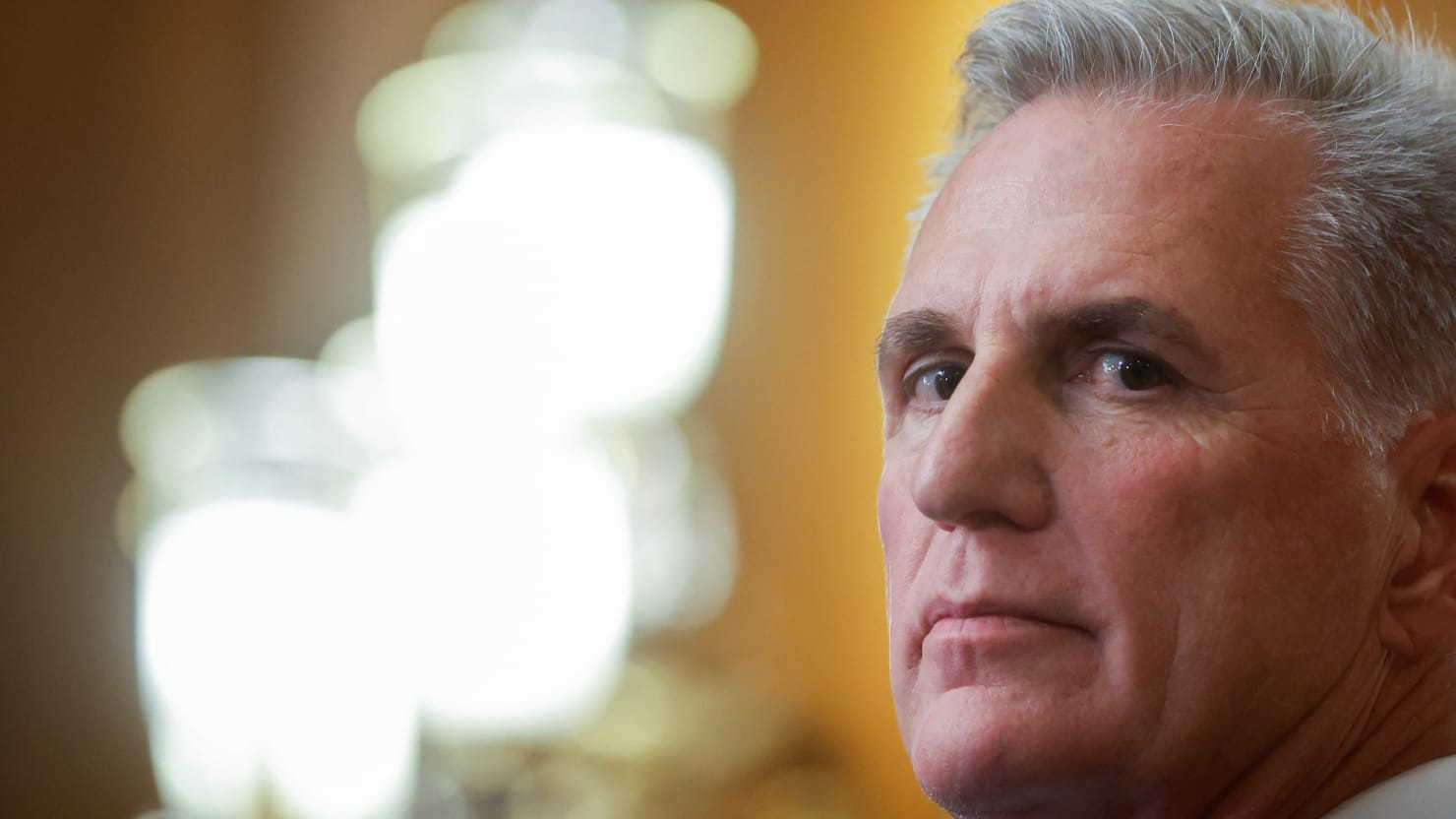- cross-posted to:
- politics@lemmy.world
- cross-posted to:
- politics@lemmy.world
Just four days out from a government shutdown, House Speaker Kevin McCarthy has declared a bipartisan Senate stopgap measure dead on arrival.
Senators, having apparently lost faith in McCarthy’s ability to stave off a shutdown, negotiated a bill late Tuesday night that funds the government until Nov. 17 and includes $12 billion in aid and disaster relief for Ukraine. It’s expected to be voted on by the end of the week before being sent over to the House, and is intended to buy lawmakers more time to hash out a longer-term deal, Sen. Chuck Schumer (D-NY) said.
But, according to Punchbowl News, McCarthy said in a closed-door meeting on Wednesday morning that he wouldn’t take up a bill that includes Ukraine funding but no border security measures. “I don’t see the support in the House,” he reportedly said.
Aid for Ukraine has been one of several sticking points for ultraconservative hardliners in the House who have repeatedly sabotaged McCarthy’s efforts to get spending bills passed.


So I think I must’ve slept past part of highschool civics class. Why does the Speaker of the House get to unilaterally decide what bills the House will vote on? If this bill was unanimously supported by Democrats and a few Republicans, it would pass. So how does one man just decide not to vote on it and shut down the government?
It’s not totally unilateral. If a majority of members sign onto what’s called a discharge petition, legislation can advance without the speaker’s approval. The issue is:
There’s a process and it takes about 30 days to do that.
Republicans typically refuse to sign onto these when in the majority, even the moderates.
His literal function is to decide what gets voted on. You smelt past a lot of class.